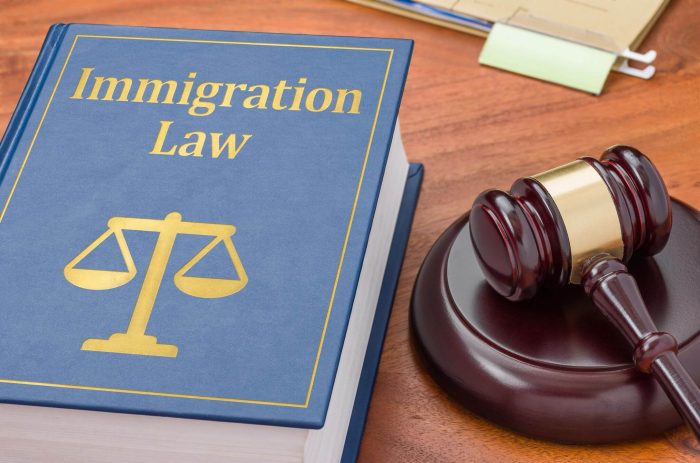The “Public Charge” Rule
In the determination of whether to grant an applicant a visa or a green card, an immigration officer must decide whether that person is likely to become dependent on the government for subsistence in the future, which could make them a “public charge.” The rule will incredibly have an impact on immigration and public benefit. Among all the measurements that President Donald Trump has implemented so far, the “public charge” rule could be the most influential one on legal immigration.

The “public charge” rule is to reduce the number of applicants for green cards or visas in the United States. According to the USCIS and Department of Homeland Security (DHS), this rule will take effect on Feb. 24, 2020, except in Illinois, and will affect people applying for visas or green cards in the U.S. through Adjustment of Status (AOS) applications. Under the new “public charge” rules, the federal government will consider more types of public benefits when administering the “public charge” test.
Under the new rule, an immigration official will consider more benefits, such as non-emergency Medicaid (with some exceptions), Supplemental Nutrition Assistance Program (SNAP), and housing assistance. In addition, it will take consideration of other factors differently, many factors are considered in deciding whether an individual is likely to become a public charge in the future, such as the individual’s age, health, family status, financial status, education, and skills, etc.
Who is subject to the public charge?

However, only those seeking admission to the U.S. or applying for a green card based on a petition filed by the U.S. citizen or permanent resident family member are subject to public charge.
The non-citizens that most affected by the rule are those seeking for permanent resident status based on family relationship, while non-immigrants (e.g., students, tourists, temporary workers), or the ones that are seeking for extending their stay in the U.S. are also subject to this rule ground of inadmissibility, and this new rule would require them to prove their inaccessibility to certain benefit programs “for more than 12 months in the aggregate within any 36-month period (such that, for instance, receipt of two benefits in one month counts as two months).” This rule doesn’t apply to visa applicants whom Congress has exempted from the public charge test, such as refugees, asylees, Afghan and Iraqi nationals with the special immigrant visas and other categories.
What is the process of the rule?
Immigrant visa applicants will need to submit a Form DS-5540, which will likely be screened by the National Visa Center in advance. The file will be processed once NVC considers the applicant “documentarily qualified”. In terms of permanent resident that seeking citizenship, Congress states that a permanent resident can only be deported on public-charge grounds within the first five years of obtaining their green card, and only if they became a public charge based on circumstances that existed before they obtained their green card.
Under the new rule, a public benefit includes the following:
- Any federal, state, local, or tribal cash assistance, including Supplemental Security Income (SSI), Temporary Assistance for Needy Families (TANF), or any other cash benefit program;
- SNAP (food stamps);
- Section 8 Housing Assistance under the Housing Choice Voucher Program;
- Section 8 Project-Based Rental Assistance (including Moderate Rehabilitation);
- Public housing under Section 9 of the U.S. Housing Act;
- Medicaid (HUSKY), with certain exceptions (not considered a public charge for anyone who is under the age of 21 or pregnant).
If you need legal advice on these issues, Sethi & Mazaheri can provide high-quality high immigration legal services. At our firm, we are here to guide you on all the processes that are needed for your immigration and status-seeking.







 by Prozco®
by Prozco®